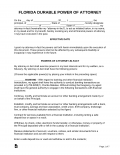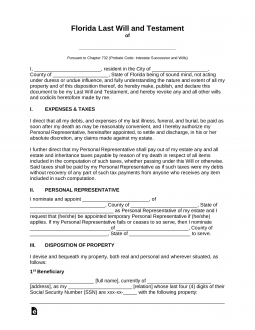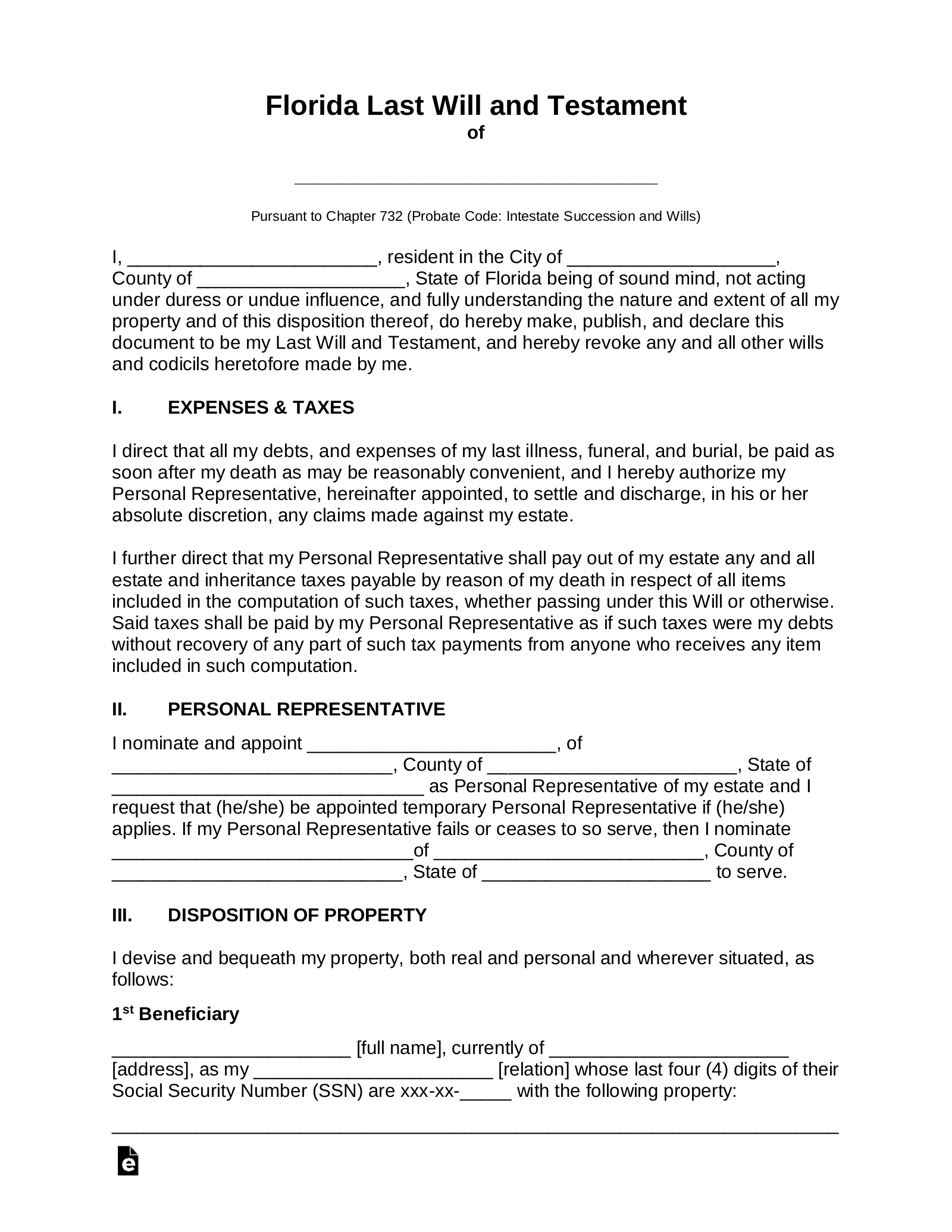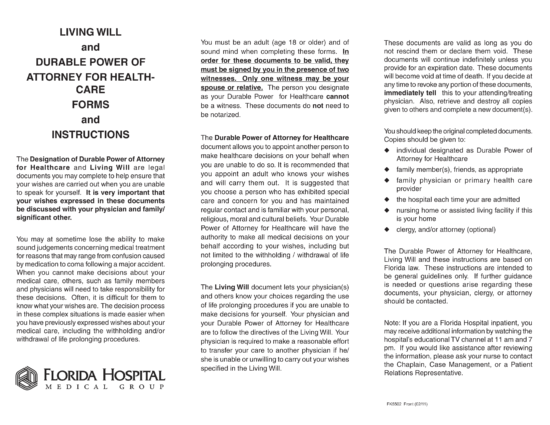Updated November 15, 2023
A Florida last will and testament is a legal document that outlines how an individual (“testator”) wishes to distribute their personal and real property, fiduciary funds, as well as any other assets upon their death. This document allows the testator to designate beneficiaries for their estate. Wills may be amended or revoked at any time.
Signing Requirements
Two witnesses must be present when the testator signs the will. Both witnesses must sign as well.[1]
State Definition
“Will” means an instrument, including a codicil, executed by a person in the manner prescribed by this code, which disposes of the person’s property on or after his or her death and includes an instrument which merely appoints a personal representative or revokes or revises another will.[2]
Related Forms
Download: PDF
 Durable (Financial) Power of Attorney
Durable (Financial) Power of Attorney
Download: PDF, MS Word, OpenDocument



